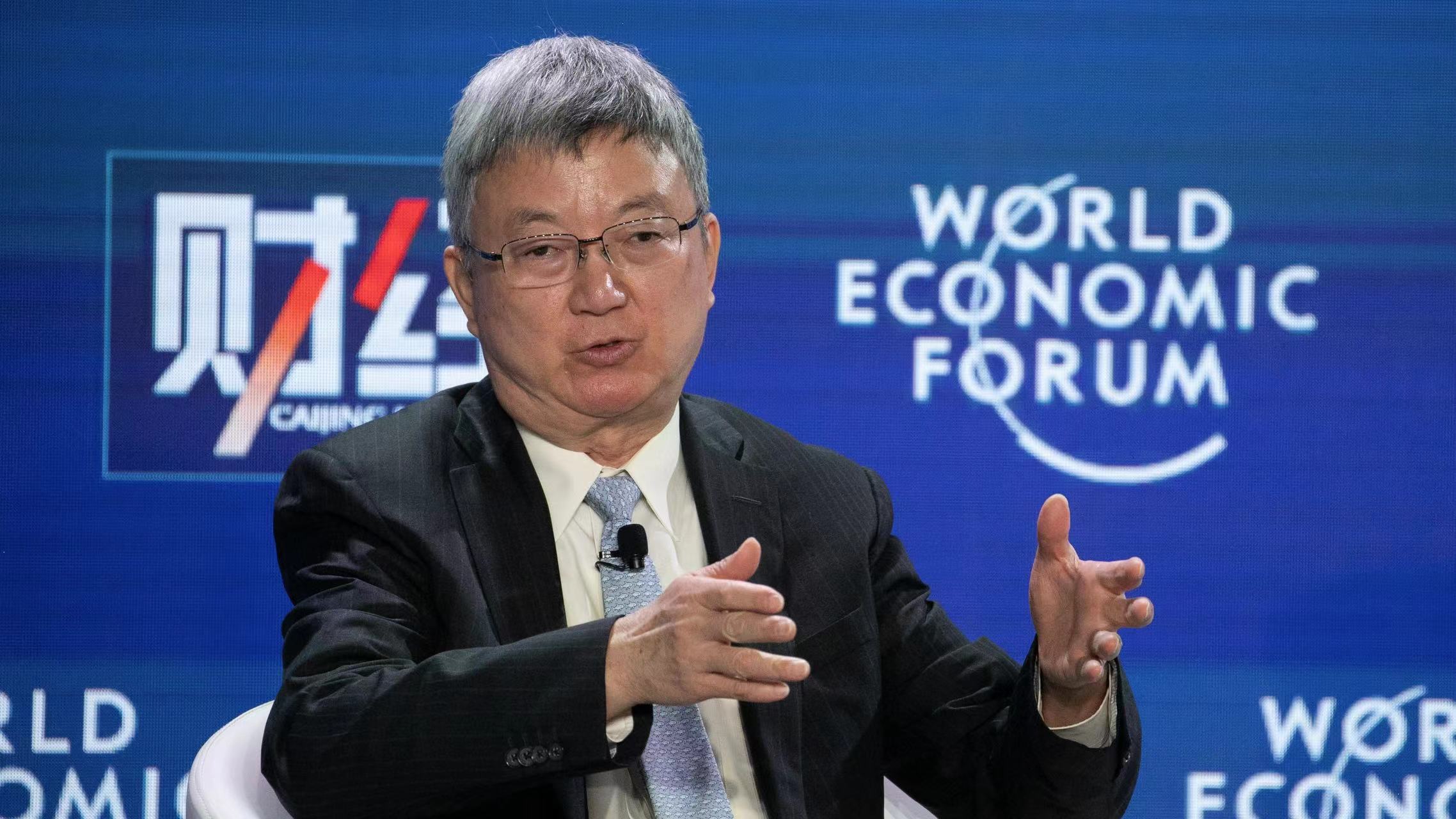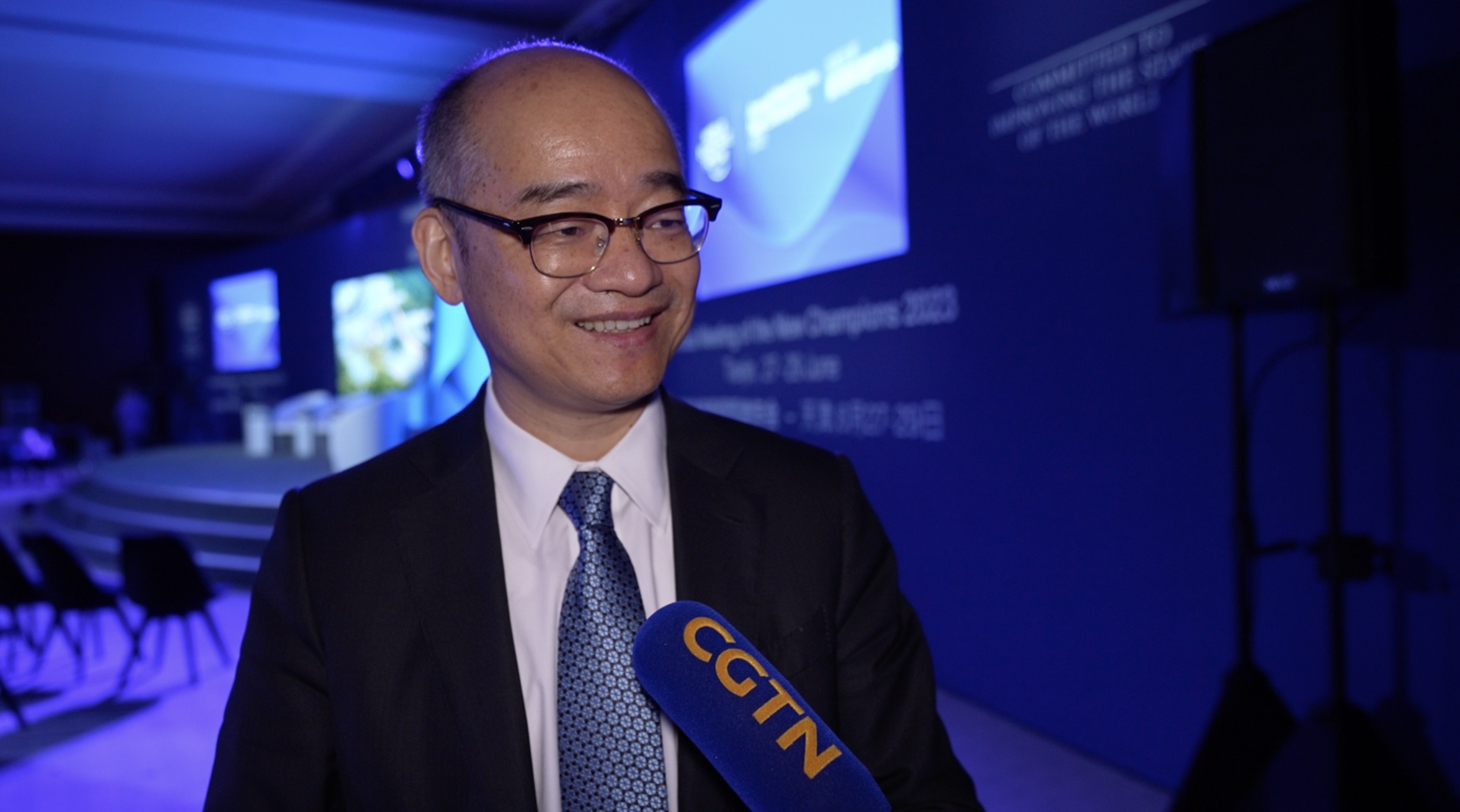
Zhu Min, vice-chairman of China Center for International Economic Exchanges and former deputy managing director of the IMF, speaks at the subforum themed "A New Blueprint of Digital China" of the 14th Annual Meeting of the New Champions in Tianjin, China, June 28, 2023. /WEF
Zhu Min, vice-chairman of China Center for International Economic Exchanges and former deputy managing director of the IMF, speaks at the subforum themed "A New Blueprint of Digital China" of the 14th Annual Meeting of the New Champions in Tianjin, China, June 28, 2023. /WEF
Zhu Min, vice-chairman of China Center for International Economic Exchanges and former deputy managing director of the International Monetary Fund (IMF), said he expects the digital economy to permeate every aspect of our lives in the next decade.
At a subforum of the 14th Annual Meeting of the New Champions, also known as Summer Davos Forum, Zhu emphasized the transformative impact of Artificial Intelligence Generated Content (AIGC), such as ChatGPT, on the digitization process in many sectors, such as retail and manufacturing.
He explained that AIGC would revolutionize marketing by replacing video content, which has already displaced traditional forms of advertising, and highlighted the significance of this shift by stating that AIGC's ability to understand consumers' preferences and influence their purchasing decisions would fundamentally change the retail landscape.
In terms of manufacturing, Zhu said the scale and computational power of the large AI model make it the ultimate controller of real economy. It can manage all the data, continuously optimize and iterate, realizing the digitization of the manufacturing industry.
The ChatGPT era would necessitate robust infrastructure, with Zhu identifying computing power, data and cloud services as the crucial foundations.
China has made efforts to welcome such an era, as the digital economy has made up 40 percent of its gross domestic product.
The country has introduced various measures, including 20 initiatives, to establish data systems and an overall digital development plan by 2025, aiming at leveraging its vast data resources and application scenarios.
Market intelligence firm IDC has projected that China will emerge as the world's largest datasphere by 2025.
Zhu emphasized the need to transform data into valuable assets rather than mere resources, citing a reform plan that entails establishing a national data bureau to enhance data management and governance.
He also underlined the unstoppable momentum of China's digital economy, given the nation's extensive database.

William Yu, president of Honeywell China, is interviewed after the subforum themed "A New Blueprint of Digital China" of the 14th Annual Meeting of the New Champions in Tianjin, China, June 28, 2023. /CGTN
William Yu, president of Honeywell China, is interviewed after the subforum themed "A New Blueprint of Digital China" of the 14th Annual Meeting of the New Champions in Tianjin, China, June 28, 2023. /CGTN
International cooperation prospect
William Yu, president of Honeywell China, echoed this sentiment, expressing optimism about the opportunities offered by the development of China's digital economy.
Yu praised China's efficient and environment friendly management solutions, which he believes can be replicated internationally.
In light of the burgeoning digital economy, Honeywell intends to seek more investment opportunities in China, Yu told CGTN.